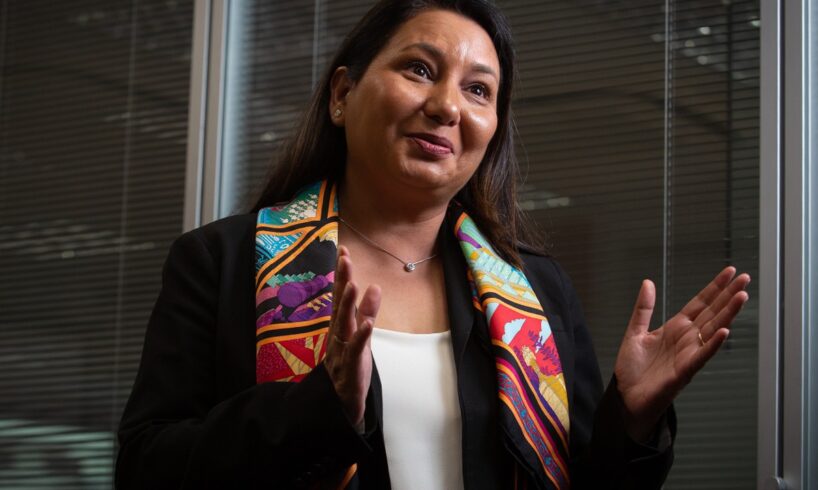
Although Brazil’s sovereign credit rating remains at ‘BB’ with a stable outlook, the country’s future rating trajectory will depend on the next administration’s approach to fiscal consolidation after the 2026 elections. Shelly Shetty, Fitch Ratings’ managing director and head of Asia and Americas Sovereigns, said in an interview with Valor that it will be crucial to assess whether the government implements reforms to control the growth of mandatory spending and strengthen market confidence in the country’s fiscal framework.
“By June next year, we’ll have to reassess Brazil’s credit fundamentals and offer an updated view on growth and fiscal trajectory. We’ll be closer to the 2026 elections, with greater clarity on the candidates and perhaps their plans. But the plan alone isn’t enough, execution is what matters. That will depend on the election outcome: what kind of political capital the new president will have, what the makeup of Congress will be, and whether there’s willingness to pass reforms. That’s key to determining the rating’s direction,” Ms. Shetty said.
Fitch last acted on Brazil’s sovereign rating in July 2023, when it upgraded the country to ‘BB’ with a stable outlook. Since then, the agency has kept the rating unchanged and has not signaled whether the next move will be a downgrade or another upgrade. Ms. Shetty said Brazil’s rating is currently “well calibrated.”
Expected fiscal boost may limit room for monetary easing
“We are fully aware that Brazil’s debt is high and rising in our base case. When we assigned the rating, the country’s debt was already nearing 80% of GDP, and we expect it to exceed that, reaching 85–86%, in the coming years. Still, we believe this remains within the range of the current rating,” she said.
She warned, however, that this could change if economic growth slows significantly, if the government fails to meet its primary balance targets and fiscal performance deteriorates sharply, or if financing costs spike, although the latter is not currently part of Fitch’s base case.
For now, the agency believes the government will meet its 2025 primary balance target of zero deficit. But regarding the 2026 budget, Ms. Shetty said it’s too early to be certain about the direction of fiscal policy. Fitch currently forecasts Brazil’s GDP growth at 1.9% in 2026, below the 2.4% projected in the draft budget submitted to Congress late last month.
“The budget also includes tax measures that still need congressional approval, and we’ll be watching to see if that happens. Then in 2026, we’ll have elections. If growth remains moderate and the election is tight, there may be a temptation to ease fiscal discipline, we’ll be monitoring that too. From 2027 onward, it will depend on who wins. We’ll evaluate the situation and see what reforms may be necessary to contain the rise in mandatory spending and reinforce confidence in fiscal targets and the spending cap framework,” she said.
Ms. Shetty also addressed the market’s recurring skepticism over Brazil’s ability to meet its fiscal targets under the current framework.
“As the year progresses and the budget is implemented, the market gradually sees that the target will be met. But the following year, the doubts return, and markets project deficits higher than the budgeted numbers. This shows there is still a need for greater confidence in the government’s ability to deliver,” she noted.
Roughly 90% of the federal budget is already committed to salaries, pensions, and other mandatory spending, she said, which leaves limited room for discretionary expenditures and investment.
“If mandatory spending keeps growing, that space will shrink even further. The question is whether we’ll see reforms that curb this growth, ending the recurring annual doubts about whether the government can meet its fiscal targets.”
Ms. Shetty also acknowledged a recent deterioration in Brazil’s current account balance, a metric Fitch previously saw as a credit strength. Still, she believes Brazil’s external accounts remain sound.
“The 12-month current account deficit is around 3.5% of GDP, but a large part of that is still financed by foreign direct investment. And when a country has a floating exchange rate and high international reserves, we look at other indicators too. On those fronts, Brazil is in a good position: external liquidity covers more than eight months of imports, and the country is a net external sovereign creditor, in a stronger position than many of its BB-rated peers. That makes Brazil more resilient to external shocks.”
Ms. Shetty emphasized that Brazil still has several “relative strengths.” “It’s a large, diversified economy with deep financial market penetration, solid external accounts, and a strong external balance, particularly thanks to high reserves,” she said.
“On the other hand, fiscal policy remains a weak point. But despite global uncertainties, Brazil’s starting point is relatively strong. Strengths and weaknesses appear fairly balanced at the moment.”





